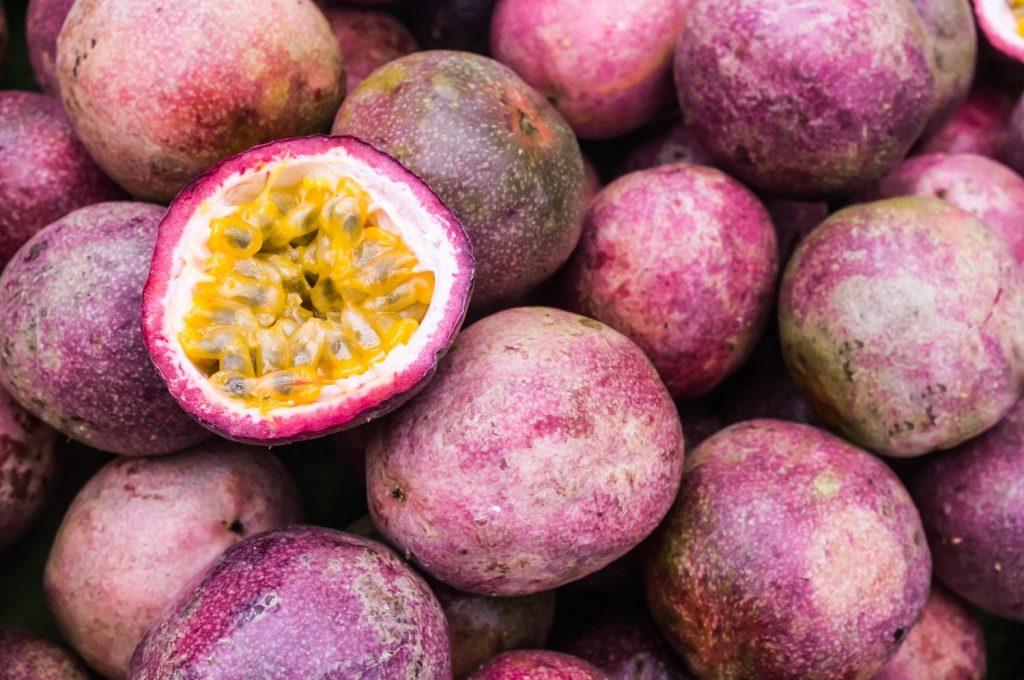Growing fruit plants at home can be a fun and rewarding experience, and there are many different types of fruit plants that can be grown in a variety of climates and conditions. Some popular fruit plants that can be grown at home include:
- Guava
Guava plants can be a great addition to a home garden, as they are relatively easy to grow and produce a delicious fruit high in vitamin C and other nutrients. Guava plants prefer full sun, so choose a location that gets at least six hours of direct sunlight each day. Plant it in well-draining soil and use fertilizer every few months. - Banana
Bananas are tropical fruit that can be grown in warm, humid climates. They require plenty of sunlight and regular watering and must be protected from frost. Bananas are heavy feeders and benefit from regular fertilization.
- Papaya
Papaya is a delicious and nutritious fruit that can be grown at home. Papaya plants require full sun and warm temperatures to thrive. Choose a location that gets at least six hours of direct sunlight each day, and that is protected from strong winds. Papaya plants need regular watering, especially during the dry season.
- Lemon
Lemons are a good source of vitamin C and can be easily grown at home. Use a well-draining soil mix that is rich in organic matter. A pH of 5.5 to 6.5 is ideal for lemon plants. Lemon plants require at least 6-8 hours of sunlight each day, so place the pot in a sunny location. Fertilize the plant every 4-6 weeks during the growing season (spring and summer). Use a fertilizer with a higher percentage of nitrogen to encourage leaf growth and a lower percentage of phosphorus and potassium. - Passion Fruit
Passion fruit is round or oval in shape, with thick, tough skin that can be yellow, purple, or green in color. Inside, the fruit is filled with juicy, flavorful pulp that contains small, black seeds. It is a good source of vitamins and minerals, including vitamin C, vitamin A, and potassium. Passion fruit grows best in warm, humid climates with plenty of sunlight. Passion fruit vines also need well-draining soil and support structures. Passion fruit vines should be pruned each year to help promote healthy growth and fruit production. Prune in late winter or early spring, before new growth begins.
- Pomegranate
Pomegranate trees can be planted in the ground or in large containers. Pomegranate trees need plenty of sunlight, so choose a location that gets at least 6-8 hours of direct sunlight each day. They also need well-drained soil, so avoid areas that are prone to standing water. Pomegranates are rich in antioxidants, vitamins, and minerals, and have a number of health benefits
- Pineapple
After planting, pineapple trees need at least two years to start bearing fruit. A plant can only bear one fruit before it dies, but it could also have descendants that take 18 months to develop. For healthy growth, pineapple plants require a lot of sunlight and a large area. Trimming the flesh at the top of the plant will help speed up the growth of pineapple fruit plants. - Custard Apple
The custard apple is commonly known as Sita phal in India. Custard Apple fruits are tropical in origin and require a hot and dry climate during flowering and high humidity at the fruit set. Use a well-draining soil mix that is rich in organic matter. Water the plant regularly, but don’t overwater. Make sure the soil is moist, but not soggy. - Mango
The king of all fruits, Mango can be easily grown at home if given proper care. Mango trees can produce fruits in 3-5 years. Mango trees can grow quite large, so make sure to regularly repot the tree into a larger pot or consider planting it in the ground if you have space. Enjoy the process and the delicious fruit that your mango tree will provide.
When selecting a fruit plant to grow at home, it’s important to consider the specific climate and growing conditions in your area and to choose a variety that is well-suited to those conditions. With proper care and attention, home-grown fruit can be a delicious and healthy addition to your diet.

